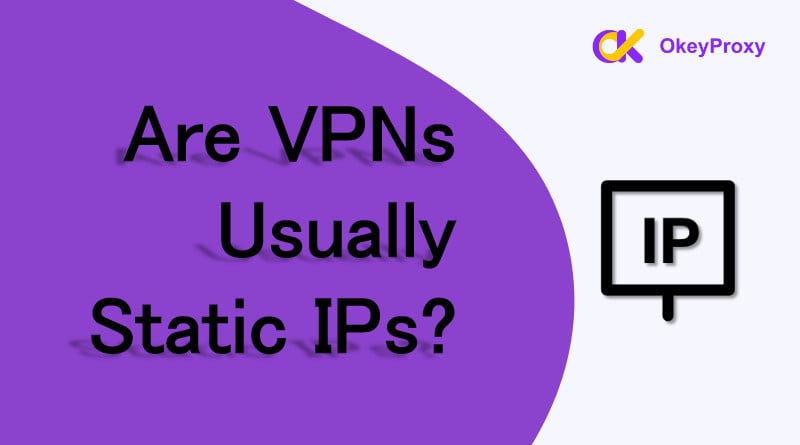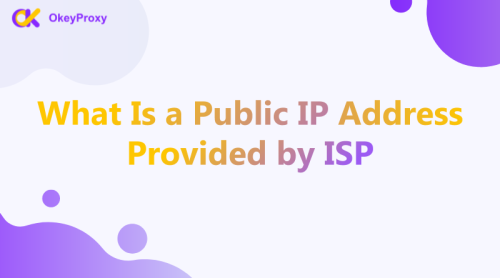Do VPNs usually provide static IPs? Virtual Private Networks (VPNs) are essential tools for privacy and security. When considering the use of a VPN, a common question arises: Are VPNs usually static IPs? The answer to this is multifaceted, involving an understanding of VPN services, IP address types, and the specific requirements for use cases like browsing, streaming, and online transactions.
Understanding VPN IP Types: Static vs. Dynamic IPs
To better comprehend whether VPNs typically use static IPs, it’s crucial to first understand the difference between static and dynamic IP addresses.
- Static IP Address: A static IP remains consistent each time you connect to the internet. It does not change over time, making it ideal for tasks that require a constant location or configuration, such as hosting a server or managing remote access.
- Dynamic IP Address: A dynamic IP address changes each time a user connects to the internet. This type of IP is more common in general internet use, where the ISP or VPN provider assigns a different IP from a pool of addresses upon every connection.
Most commercial VPNs tend to use dynamic IP addresses for their general user base. These addresses are typically assigned from a shared pool and change every time a user connects to a VPN server, providing additional layers of anonymity. Dynamic IPs are particularly useful for users who prioritize privacy and want to obscure their browsing activities by constantly changing their virtual location.
- Privacy: Rotating IP addresses can enhance privacy as it makes it more challenging to trace individual users.
- Scalability: Dynamic IPs allow VPN providers to accommodate a large number of users without the need for extensive infrastructure to support static IP addresses.
- Cost-effectiveness: Dynamic IP allocation is easier to manage and more cost-effective for VPN providers.
However, some VPN services do offer static IP addresses, typically as an add-on feature for those who need consistent access to specific services. Static IPs are often useful for:
- Remote Work: When accessing corporate networks, a static IP ensures that the network consistently recognizes the connection, facilitating smoother remote operations.
- Secure Online Banking: Static IPs can add an extra layer of security by restricting access to only certain IP addresses, ensuring secure online transactions.
- Hosting Servers: If hosting a website or server, a static IP ensures uninterrupted accessibility.
- Email Marketing: Static IPs benefit businesses and individuals who require a good IP reputation and avoid issues of frequent IP changes that could lead to being flagged as spam or blocked.
VPN Providers Offering Static IPs and Dedicated IPs
While dynamic IPs are more commonly provided by VPNs, some specialized VPN providers offer static IP services either by default or as an optional feature. These providers cater to users who need fixed IP addresses for specific applications and offer dedicated IP address options at an additional cost.
Examples include:
-
NordVPN
NordVPN is a prominent VPN provider renowned for its robust security features and extensive server network. It offers both static and dedicated IP options, catering to various user needs.
-
PureVPN
PureVPN provides a wide range of VPN services with a focus on high-speed connections and comprehensive privacy features. Their static and dedicated IP offerings cater to users who require a stable online presence.
-
CyberGhost
CyberGhost is known for its user-friendly interface and strong privacy protections. It offers dedicated IP options for users who require more control over their VPN connections.
-
Surfshark
Surfshark is a rapidly growing VPN provider with a strong emphasis on security and user privacy. It offers dedicated IP services suitable for various needs.
-
Private Internet Access (PIA)
Private Internet Access (PIA) is known for its extensive server network and customizable features. It provides options for dedicated IP addresses, catering to users with specific needs.
However, for users who require robust control over IP allocation, flexibility, and performance, when choosing a VPN that provides reliable static IP addresses, served as a superior solution to relying solely on a VPN with static IP, proxy service is a highly recommended option.
Better Dynamic/Static IP Provider: Proxies [Tip]
Proxies, such as SOCKS5, HTTP, or HTTPS proxies, offer a layer of control that many VPNs cannot. In contrast to VPNs, proxies can handle specific tasks like web scraping, SEO monitoring, or even bypassing geo-restrictions with higher precision.
One standout provider in this field is OkeyProxy, a trusted service for high-quality proxy solutions, including static and rotating IPs. OkeyProxy offers several advantages:
- Static and Rotating IPs: OkeyProxy gives users the option to choose between static IPs for consistent access or rotating IPs to switch identities, depending on the task at hand.
- Customization: The service allows users to adjust settings and create tailored configurations, making it ideal for complex operations like e-commerce monitoring or competitive data scraping.
- Advanced Protocols: Supporting SOCKS5, HTTP, and HTTPS, OkeyProxy ensures versatile compatibility for all types of network operations, offering the best balance between security, speed, and performance.
- Global IP Availability: With OkeyProxy, users can select static IPs from a variety of global locations, ensuring accessibility to services across different regions.
Full List of Static IPs Across the World by OkeyProxy!

With OkeyProxy, users can easily obtain static IP addresses that cater to specialized needs such as remote access, server management, and secure whitelisting.
Get A Free Trail of OkeyProxy Now!
Conclusion
Most VPNs typically use dynamic IPs for their users, which ensures better privacy and security. However, for those who require a static IP for specific tasks such as remote access, hosting, or secure transactions, many VPN providers offer static IP services as a premium feature.
For users seeking greater flexibility, control, and performance, OkeyProxy offers an excellent alternative. With options for both static and rotating IPs, as well as support for advanced proxy protocols, OkeyProxy is a top recommendation for professionals looking to achieve seamless and secure online operations.
By understanding the differences between VPN services and proxy solutions, users can make more informed decisions based on their unique needs, ensuring that they select the best tool for their specific tasks.







![[In-Depth Comparison] Static Residential Proxy vs Residential Proxy static residential proxy vs residential proxy](https://www.okeyproxy.com/wp-content/uploads/2024/08/static-residential-proxy-vs-residential-proxy-300x167.jpg)



